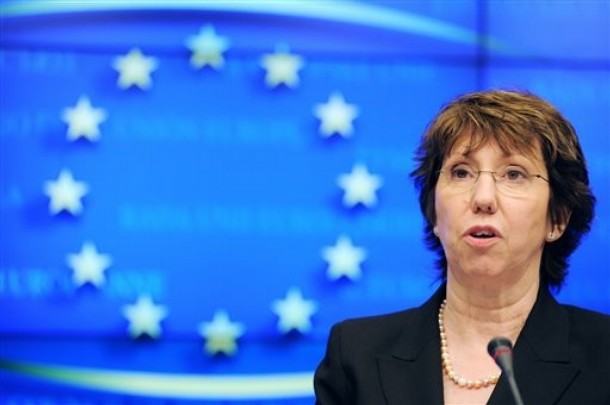
From Steven Erlanger, the New York Times: [T]here is growing unease that she [the European Union’s foreign policy chief, Catherine Ashton] has not been forceful enough in front of Europe’s nation-states on breaking world events like those in the Middle East and North Africa. There is also concern that she has not traveled quickly enough to trouble spots, and that she has been too reluctant to get her message out through the news media. …
On Jan. 29, to her embarrassment, the leaders of the most influential nations in the European Union — Germany, France and Britain — issued a statement calling for free and fair elections in Egypt in advance of a European foreign ministers’ meeting set for two days later, at which Ms. Ashton was scheduled to try to find a European consensus. Even the statement on Jan. 29 followed an American lead. …
“They want her to be Hillary Clinton, and that’s what she tries to be and wants to be,” the aide said. “But the states have to give her the tools and the mandate. If they want her to be the Hillary Clinton of Europe, give her the power.”
Part of Ms. Ashton’s problem is exactly that: the member states do not want to give her the power. They do not really want a European foreign minister, and they are not sure she is up to the job, said Philip Stephens, a columnist for The Financial Times. …
Angela Merkel, the German chancellor, seemed to acknowledge a problem when Mr. [Francoise] Heisbourg asked why the European Union reaction to events in the Middle East and North Africa had been so “slow and stiff,” and whether the group should reassess its structures.
“Lady Ashton has been in the job a year,” Mrs. Merkel said. “We have to strengthen her. It’s not easy. We all like our own foreign policies. But we need to have a visible face that represents us. And it’s up to us to strengthen her position.”
But Mrs. Merkel did not indicate any particular willingness to do so. (photo: AP)
Image: ap%202%2011%2011%20Catherine%20Ashton.jpg
